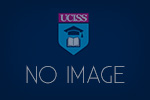Doctor of Medicine – Universiti Kebangsaan Malaysia (MD – UKM).
- Field Of Study:
- Health, Medicine & Welfare
- Level Of Study:
- PhD. Studies
- Course Subject:
- Course Intake:
- September
Programme Description
The MD UKM is a pioneering franchise program, the first of its kind accorded by the university. The student will earn a Doctor Of Medicine – Universiti Kebangsaan Malaysia (MD – UKM) once they have completed the 5 years program. medic
The program consist of two phases:
- 1st Phase: Pre Clinical studies at AUCMS Campus for 2 years.
- 2st Phase : Clinical Studies at Ministry Of Health affiliated hospital for 3 years
Clinical years will be conducted through a network of teaching hospitals.
- Hospital Taiping , Perak
- Hospital Langkawi , Kedah
- Hospital Kulim , Kedah
- Hospital Kepala Batas , Penang
- Hospital Baling , Kedah
- Hospital Tuanku Fauziah , Perlis
Entry Requirements
Student will be selected for places in AUCMS on the basis of: Performance at a structured interview which will be used to access English –
- competency,
- communication skills,
- maturity,
- motivation,
- involvement in extra curricular activities and suitability for a medical career. Academic qualifications as per requirement by UKM
Entry Qualification
- Pass SPM with a minimum entry requirement
- Malaysian University English Test (MUET) Minimum Band 4
- Foundation in Medical Studies (AUCMS) with minimum CGPA of 3.50
- STPM with minimum CGPA of 3.50
- Local Matriculation with a minimum CGPA of 3.50
- Diploma in Sciences (IPT) with a minimum CGPA of 3.50
- South Australia Matriculation with a minimum 80% in 3 Science subjects or Mathematics
- Australian Matriculation (AUSMAT) with a minimum 80% in 3 Science subjects
- Canadian Pre-University (CPU) with a minimum of 80% in 3 Science subjects
- Canadian International Matriculation Program with a minimum CGPA of 3.50 in 3 Science subjects
- Pass in Foundation of Sciences with a minimum CGPA of 3.50
- Degree in Biomedicine with a minimum CGPA of 3.50 or equivalent.
Course Structure
- Celular Biomecules
- Tissue of Body
- Membranes & Receptors
- Human Genetics
- Clinical Sciences 1A
- Personal & Professional Development 1A
- Co-curriculum
- General Studies (U1)
- Co-curriculum
- Metabolism
- Infection & Immunity
- Mechanism of Disease
- Musculoskeletal System
- Clinical Sciences 1B
- Medicine & Society 1
- Personal & Professional Development 1B
- General Studies (U1)
- Co-curriculum
- Blood & Lymph
- Cardiovascular System
- Respiratory System
- Urinary System
- Clinical Sciences 11A
- Medicine & Society 11A
- Personal & Professional Development 11A
- General Studies (U2)
- Gastrointestinal System
- Endocrines System
- Neuro Sciences
- Reproductive System
- Clinical Sciences 11B
- Medicine & Society 1
- Personal & Professional Development 11B
- General Studies (U3)
- Medicine
- Surgery
- Medicine & Society III
- Obstetrics & Gynaecology
- Personal & Professional Development III (Semester 1)
- Personal & Professional Development III (Semester 2)
- Psychiatry
- Paediatrics
- Orthopedics & Traumatology
- Personal & Professional Development IVA & IVB
- Special Study Module I & II
- Forensic Pathology I & II
- Otorhinolaryngology
- Ophthalmology
- Anaesthesiology
- Medicine
- General Surgery
- Paediatrics
- Obstetrics &
- Special Study Module (SSM)
- Personal & Professional Development V
- Medicine & Society
- Psychiatry
- Family Medicine
Method of Assessment
- In Years 1-2, the assessment consists of continuous and end of semester examinations comprising one best answer questions (OBA), extended matching question (EMQ), modified essay questions (MEQ) and objective structured practical or clinical examinations (OSPE / OSCE).
- In Years 3-5, assessment in the clinical disciplines comprises continuous assessment, theory and clinical examinations as well as assessment of personal and professional development. End of semester examinations are conducted by all departments and an integrated, comprehensive Final Professional examination is held at the end of Year 5.medic
- Continuous assessment – students are assessed continuously throughout their postings on their attitude, behavior, small group discussions, case write-ups, log book and overall performance observed during the posting
Source : Allianze Unversity College of Medical Sciences
